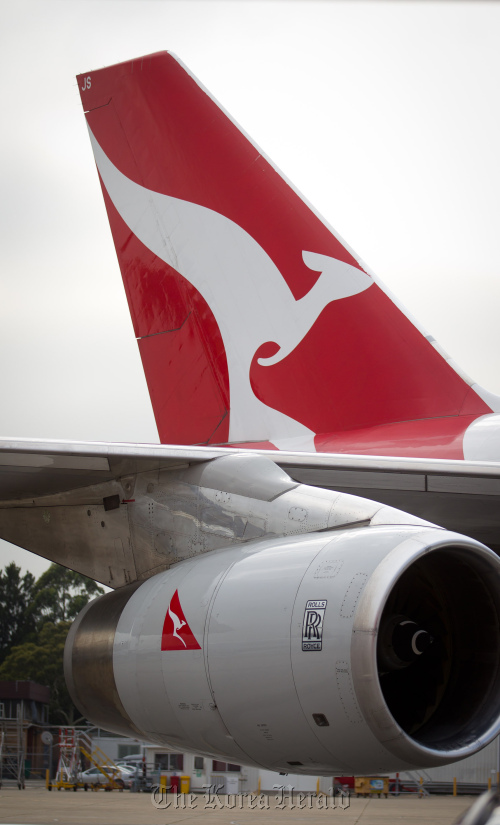SYDNEY (AFP) ― Qantas and one of the three unions at the centre of a long-running industrial dispute that led to the airline’s fleet being grounded reached an agreement on Monday to end their standoff.
The breakthrough will be presented to Fair Work Australia, the country’s industrial relations umpire, later Monday, almost two months after Qantas chief Alan Joyce ordered all planes out of the skies.
The unprecedented shutdown followed a fierce backlash from unions, including rolling strikes, concerned at threats to wages and the possible outsourcing of jobs linked to the carrier’s plans to establish a premium Asian airline.
With unions representing pilots, engineers and ground staff unable to resolve their disagreements with the airline, Fair Work Australia was forced to step in with the dispute headed to arbitration.
But the Australian Licensed Aircraft Engineers Association has now agreed to a deal, preferring to have some say over negotiations rather than risk being bound entirely by a final decision from the industrial umpire.
“We will be submitting an agreed workplace determination to Fair Work Australia today that represents a good deal for Qantas and its 1,600 licensed engineers,” Qantas said in a statement.
“It does not include any of the claims that would have restricted Qantas in making the changes needed to compete in the global aviation industry.”
“We are very pleased to have finally reached an agreement,” it added.
Steve Purvinas, secretary of the engineer’s union, said a three-year package was approved by nationwide meetings of members, with annual pay rises of three percent.
In a concession, the union backed down on a demand that a hangar for heavy maintenance on Airbus A380 double-decker jumbos must be built in Australia instead of in Asia.
 |
The Qantas Airways Ltd. Boeing Co. 747 aircraft in Sydney. (Bloomberg) |
“What we wanted was an A380 hangar in this country and we’ve missed out on that... but what we have done, we’ve secured all of our existing job functions in a job security clause which is good news for our members,” Purvinas told national broadcaster the ABC.
While engineers reached an accord, a dispute with the Transport Workers Union and the Australian and International Pilots Association continues and is expected go to arbitration next year, a process which could take months.
Under the arbitration process, unions cannot take industrial action.
Joyce, who became public enemy number one after the shutdown he ordered stranded thousands of people around the world, said Qantas had “performed magnificently” during a difficult year.
Floods and cyclones in Australia, a massive earthquake and tsunami in Japan and ash clouds spewing out of a Chilean volcano all affected flights in 2011 while Joyce was still managing the fallout from an A380 engine blast last year.
“You don’t know what’s coming, you don’t know what’s going to hit the airline industry next and if you can’t adjust, be flexible and adapt to it, then I don’t think any airline has the right to survive,” he told The Australian.
“And the one great thing Qantas has always had, I think, is that ability.”
He said he expected an announcement on the premium Asian airline, reportedly now more likely to be based in Kuala Lumpur than Singapore, in the first quarter of 2012 as he seeks to turn around Qantas’s international business.
Within five years, the Australian flagcarrier wants to have a hub in Asia feeding traffic into the Qantas and budget offshoot Jetstar’s networks.








![[Today’s K-pop] Blackpink’s Jennie, Lisa invited to Coachella as solo acts](http://res.heraldm.com/phpwas/restmb_idxmake.php?idx=644&simg=/content/image/2024/11/21/20241121050099_0.jpg)